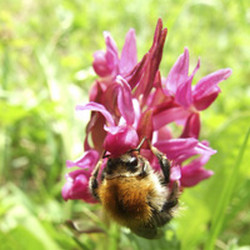Investigating plant evolution in orchids
Polyploidy (the state of having more than two copies of each chromosome) is a common occurrence in plants and has been implicated in plant evolution. Polyploidisation is thought to lead to evolution of new species through genetic redundancy, but this has not been well-studied. The EU-funded 'Molecular architecture of adaptive diffusion in sibling allopolyploid lineages' (TRANSADAPTATION) project is investigating five species in the orchid genus Dactylorhiza. Two 'parent' species are diploid (they have two copies of each chromosome), while three are polyploid 'offspring' species, meaning they are the result of hybridisation events. Researchers began by gathering samples from 25 different populations in Europe, and used genetic sequencing to collect data needed for the project. Using this information, they established a so-called 'reference genome' for each parent species. Through genome comparison, TRANSADAPTATION found that gene expression varied most widely in the most recently-evolved 'offspring' species. In general, gene expression patterns from one or the other parent species are dominant. The project also found that recurrent polyploidisation resulted in unpredictable gene expression in Dactylorhiza. It is thought that this process introduces major variation in individual plants and sets the stage for the evolution of new species. Once finalised, TRANSADAPTATION will have expanded significantly on the available body of knowledge around evolution and genetic diversity.
Keywords
Evolution, orchid, hybridisation, polyploidy, Dactylorhiza, genome

